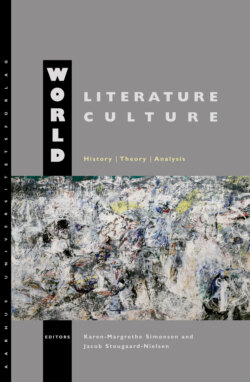Читать книгу World Literature, World Culture - Группа авторов - Страница 22
На сайте Литреса книга снята с продажи.
ETHICAL NOSTALGIA AS A LOCAL PHENOMENON
ОглавлениеNostalgia and trauma would seem an unfortunate combination: nostalgia suggests that the past has been revised to excise its painful elements. However, John Su makes a case for nostalgia’s ethical potential – especially in literature. In Su’s view, nostalgia is a way not only of remembering the past – or perhaps reshaping is a better word – but of dealing with it. Su thus adds a distinctly ethical dimension to nostalgia:
[L]iterature can contribute to ethics by virtue of acquainting readers with different worlds and providing alternative ways of perceiving familiar ones. Narratives of “inauthentic” experiences like nostalgia can offer a unique contribution in this regard, encouraging readers to perceive present social arrangements with respect to idealized images of what could have been. (Su 56)
Su proceeds from this to argue that critics of nostalgia as a form of amnesia are not all wrong. Amnesia, especially in the case of a traumatic history, is certainly a potential danger.1 It is up to the writer of the narrative to take an ethical standpoint by facing the challenge of “locat[ing] and recover[ing] experiences that a community has failed to understand and assimilate” (148). Interestingly, Pam Cook, though she does not take as firm a stand as Su in this respect, also argues that “a more interesting and challenging dimension” of nostalgia is that “it can be perceived as a way of coming to terms with the past, as enabling it to be exorcised in order that society, and individuals, can move on” (4).
Both Cook and Su, then, are interested in nostalgia’s potential ethical dimension. Writers who exploit nostalgia’s powerfully emotional effects are able to create contrasting and alternative histories through their nostalgic idealisation of the past. This can be seen, for example, in Jean Rhys’s Wide Sargasso Sea, where nostalgic Jane Eyre-style versions of the past define the present “in terms of its failure to satisfy past longings” (Su 56), and also serve to “[foreground] memories of suffering, alternative histories, lost possibilities, and uncertainty” (56). The responsible nostalgic writer, then, is a critical nostalgic: he or she shows an awareness of how unrealistic the idealised version of the past is, and plays with that knowledge by opposing it to versions of the past and present that have not undergone such idealisation. The nostalgic writer, in Su’s vision, is one who evokes the feeling of nostalgia in the reader by making past and present meet, by making the gap between the two palpable and by recognising and showing that the ideal past is irrecoverable simply because it was never perfect to begin with.
Su believes the ethical potential of nostalgia to be especially important in those instances where a traumatic past is nostalgically recalled: he argues that literature has the power to “undo traumatic history to some degree by redescribing the past” (149). Nostalgia can provide a framework against which the traumatic past can be set and thus made manageable. He recognises the potential danger of nostalgia in such texts, but argues: “The longing for a lost or imagined homeland certainly can reinforce trauma … by oversimplifying the past and repressing uncomfortable events, but it need not do so” (149).
The ethical nostalgia that John Su favours is essentially a national phenomenon. It is not a form of general nostalgia that any reader in any context and under any circumstances can relate to. Su’s nostalgia is ethical precisely because it is linked to a very specific, local context. It provides a framework for remembering at a national level and for working through trauma shared by only a very limited group of people. Ethical nostalgia in a literary work may in this sense lessen the work’s chances of becoming world literature.
This certainly appears to be the case in Manuel Vicent’s novel. At first sight, the narrator of Tranvía a la Malvarrosa is precisely the kind of narrator John Su would have wished for. He is, of course, nostalgic, recollecting his own youth from present, democratic times. At the same time, however, he is critical of his own nostalgia. Well aware now of the evil sides of the dictatorship, he repeatedly criticises his own a-political stance and overall innocence as a young teenager; his modern democratic value system dominates the novel and places the dictatorship and its values in a negative light. Does the novel in this sense provide a framework for dealing with a collective trauma, and in this way decrease its viability as world literature?
